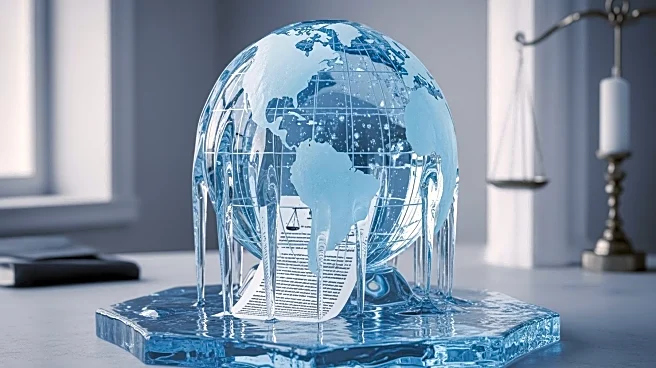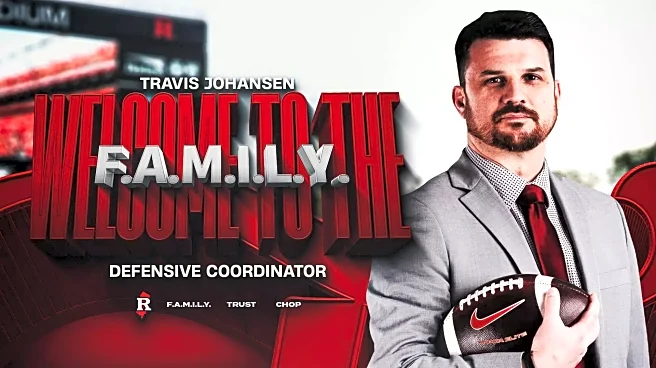What's Happening?
European Union leaders are set to discuss a controversial proposal to use frozen Russian assets to support Ukraine at a meeting in Brussels. The plan involves redirecting €140 billion worth of Russian state assets, currently held by Euroclear, to Ukraine as a 'reparations
loan.' This proposal has been under consideration for months due to legal complexities and concerns about global financial stability. Belgium has expressed reluctance to back the plan, fearing potential consequences if Russia legally challenges Euroclear. The EU has been using interest from these frozen assets for Ukraine's defense since 2024, amounting to up to €3 billion per year. The proposal aims to provide immediate liquidity to Ukraine, with the understanding that Kyiv would repay through reparations from Moscow once the war ends.
Why It's Important?
The proposal to use frozen Russian assets for Ukraine's support is significant as it addresses the urgent need for financial aid amid dwindling U.S. support. The EU has already provided €177.5 billion in financial support to Ukraine, but the ongoing conflict requires additional funds. Redirecting these assets could offer immediate relief to Ukraine, aiding its reconstruction and recovery efforts, which are estimated to cost over $486 billion. However, the plan poses legal challenges, as international law prohibits outright confiscation of sovereign assets. If implemented, it could set a precedent affecting global financial stability and the perception of Western financial institutions as reliable depositories of foreign wealth.
What's Next?
If EU leaders approve the reparations loan at the summit, the European Commission will begin drafting the formal legal proposal. Belgium's concerns about bearing the risk alone may lead to negotiations for shared responsibility among member states. Russia has reacted angrily to the proposal, labeling it as 'theft of the century' and threatening retaliation. The success of the plan hinges on Ukraine winning the war and Russia agreeing to pay damages, which remains uncertain. If Russia refuses, the EU might forgive Ukraine's debt, placing the financial burden on European taxpayers, a scenario many governments find uncomfortable.
Beyond the Headlines
The proposal raises ethical and legal questions about the use of frozen assets in international conflicts. It challenges the norms of international monetary order and could deter other countries from placing their assets in Western institutions. The plan also highlights the geopolitical tensions between Russia and the EU, with potential implications for future diplomatic relations and economic policies. The decision could influence how international law is interpreted regarding sovereign assets and reparations in conflict situations.

















